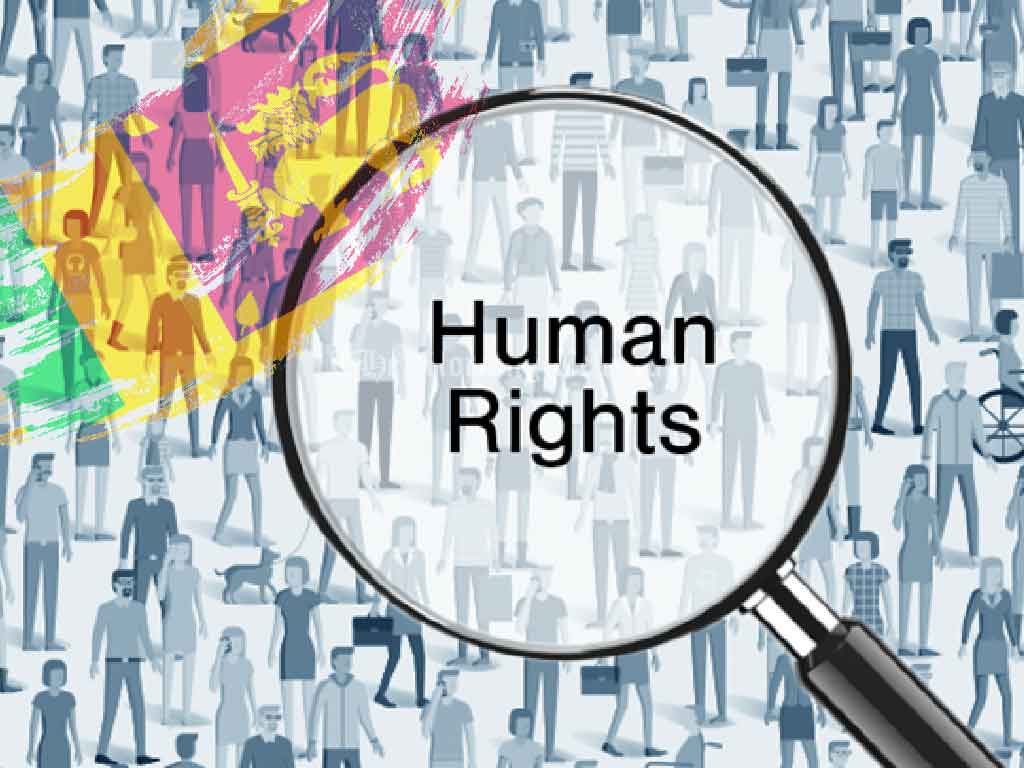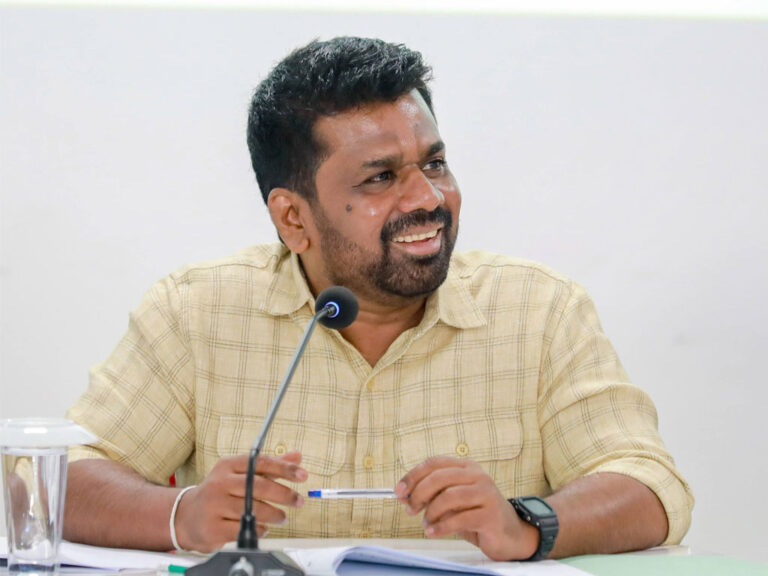
Sri Lanka is under increasing international scrutiny as it struggles to address long-standing human rights issues, despite pledges for reform from the government. The country’s human rights record continues to raise alarms over accountability, civil liberties, governance, and systemic abuses. These challenges have been compounded by the economic turmoil stemming from governance failures, corruption, and the 2022 financial collapse, which significantly impacted millions of Sri Lankans, particularly vulnerable groups such as women, ethnic minorities, and the economically disadvantaged.
The economic collapse, fueled by years of mismanagement, has had devastating effects, with nearly a quarter of the population facing food insecurity. Austerity measures imposed by the government to stabilize the economy have exacerbated existing disparities, disproportionately affecting women and marginalized communities. Amid this crisis, a report by Amnesty International paints a grim picture of the ongoing erosion of civil liberties. Journalists, human rights activists, and political dissidents face increasing harassment, surveillance, and violence as part of a broader crackdown on dissent. The government’s use of the Prevention of Terrorism Act (PTA) continues to disproportionately target Tamil and Muslim communities, and arbitrary detentions and police brutality remain rampant. Between 2023 and early 2024 alone, over 1,000 cases of abuse were reported.
The international community, including the United Nations (UN) and the European Union (EU), is closely monitoring Sri Lanka’s human rights situation. The UN Human Rights Council continues to push for accountability through its Accountability Project, while the EU evaluates Sri Lanka’s human rights practices as part of its trade relations, including its eligibility for preferential trade agreements under the Generalized Scheme of Preferences (GSP+). This scheme provides access to the European market for countries that meet certain human rights and labor standards, and Sri Lanka’s performance on these fronts is under intense review.
One of the most pressing concerns is the plight of refugees and internally displaced persons (IDPs), a tragic legacy of Sri Lanka’s decades-long civil war. The war displaced hundreds of thousands of individuals, many of whom remain unable to return to their homes due to continued repression. The UN has raised alarms over the treatment of these displaced persons, warning that the government’s failure to sign the 1951 Refugee Convention and establish a national asylum policy has left refugees without legal protection. Instead, they are treated as illegal immigrants, subject to detention and deportation. In cities like Colombo, refugees live in overcrowded shelters, relying on dwindling international aid and community support, while IDPs in northern and eastern Sri Lanka face severe deprivation, including lack of access to clean water, sanitation, healthcare, and education.
The country’s refusal to address the legal status of refugees has contributed to a growing sense of alienation and marginalization among displaced communities. Hardline nationalist groups have painted refugees as threats to national security, further complicating efforts to resettle and integrate these populations. The militarization of former conflict zones has slowed resettlement efforts, and critics argue that the government’s proposed Truth and Reconciliation Commission lacks the political will to pursue justice for the victims of the civil war. Furthermore, progress on resettling IDPs has been slow, with the government’s attempts to address land disputes and facilitate the return of displaced persons being hindered by bureaucratic obstacles and political resistance.
Human rights organizations have called for urgent reforms to address the rights of displaced people and refugees. Key measures include the development of a national asylum policy that guarantees access to essential services such as education, healthcare, and employment for displaced persons. In addition, transparent mechanisms to resolve land disputes must be implemented, fostering trust and encouraging sustainable resettlement efforts. There is also a pressing need for the Sri Lankan government to strengthen accountability for wartime abuses and ensure that perpetrators are held responsible. To address these issues effectively, Sri Lanka must enhance its cooperation with international bodies, including the UNHCR, and work with global and regional partners to secure resources and expertise for these efforts.
In a recent letter addressed to Sri Lankan President Anura Kumara Dissanayake, Human Rights Watch (HRW) urged the president to take decisive action on pressing human rights issues. The letter emphasized the urgent need for reform and highlighted the damaging impact of the 2022 economic collapse on vulnerable populations. HRW called for the president to follow through on his campaign promises, which included commitments to reforming the tax system, improving healthcare and education, and cracking down on corruption.
HRW also called attention to Sri Lanka’s status as one of the leading countries in the world for enforced disappearances, with thousands of unresolved cases dating back to the JVP uprisings and the civil war. The failure to prosecute those responsible for these disappearances or provide closure to the families of victims has left many seeking justice with little recourse. The letter urged the government to end the harassment of families seeking accountability, investigate mass graves with international technical support, and reform the ineffective Office of Missing Persons (OMP).
The PTA, a controversial law introduced in 1979, has long been a source of contention due to its sweeping powers, which allow for the detention of individuals without charge, the use of confessions obtained under duress, and the suppression of dissent. Although the government announced in 2021 that it would repeal the PTA in response to domestic and international pressure, progress has been slow, and concerns persist that alternative legal measures may continue to be used to target individuals without sufficient legal safeguards. Human rights groups argue that the repeal of the PTA, while an important step, must be accompanied by broader human rights protections to ensure the rule of law and safeguard civil liberties.
The state of freedom of expression and association in Sri Lanka remains deeply troubling. Journalists, opposition figures, and human rights activists often report harassment, intimidation, and legal threats, especially when their work involves criticism of the government or the discussion of sensitive issues such as human rights abuses, corruption, and post-war reconciliation. Civil liberties in Sri Lanka continue to face severe restrictions, with surveillance, harassment, and bureaucratic obstacles stymieing the work of civil society organizations, particularly in the northern and eastern regions of the country.
Torture, arbitrary detentions, and extrajudicial killings remain significant human rights concerns. Although the government has ratified international conventions like the UN Convention Against Torture, torture continues to be a widespread issue, with many incidents going uninvestigated or unpunished. Arbitrary detentions continue to be a common practice, particularly under vague national security laws like the PTA, and extrajudicial killings still occur, particularly during periods of political unrest or when individuals are involved in protests or activism against government policies.
Reproductive rights also remain a highly contentious issue in Sri Lanka, particularly in relation to gender equality, healthcare access, and societal norms. Although the country has made significant progress in improving maternal health, challenges persist in ensuring that all women, especially those from marginalized communities, have access to comprehensive reproductive healthcare services. Abortion laws in Sri Lanka are highly restrictive, and although abortion is allowed in cases where the woman’s life is at risk, many women resort to unsafe and clandestine procedures, putting their lives at risk. There is growing advocacy for liberalizing abortion laws, but the issue remains politically sensitive due to religious and societal opposition.
For President Dissanayake, the road ahead represents both a significant challenge and an opportunity. The country’s human rights record remains a critical issue, and the pressure is mounting on the president and his administration to take meaningful steps toward reform. The international community, particularly organizations such as the UN and HRW, is closely watching Sri Lanka’s progress in addressing these issues. For Sri Lanka to break from its troubled past, the government must commit to strengthening human rights protections, engage with international bodies, and uphold global human rights standards. This includes efforts to end arbitrary detentions, ensure accountability for past abuses, and improve the conditions for displaced persons and refugees. If Sri Lanka’s leadership demonstrates the political will to take decisive action, the country may finally begin to address its long-standing human rights challenges and move toward a future of dignity, freedom, and justice.




